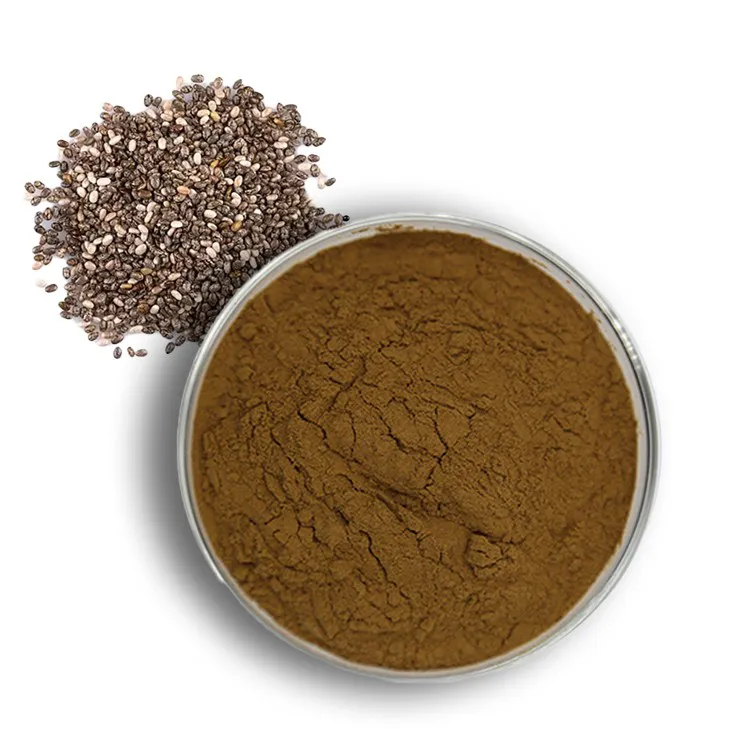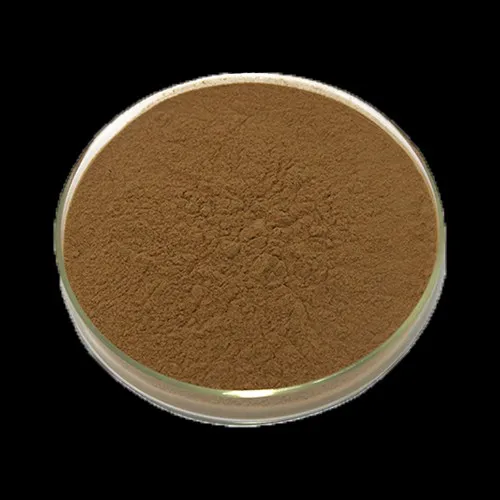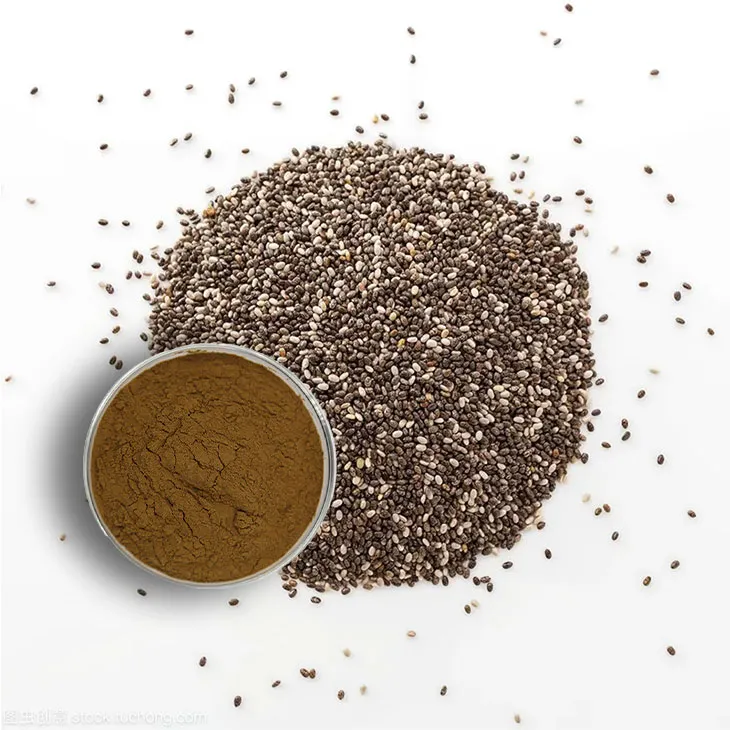- 0086-571-85302990
- sales@greenskybio.com
Bulk Manufacturers and Exporters of Chia Seed Powder.
2024-12-16

1. Introduction
Chia seeds have become a highly sought - after superfood in recent times. Their popularity can be attributed to the numerous health benefits they offer. As a consequence, the demand for Chia Seed Powder, which is a convenient form of these seeds, has been steadily increasing. Manufacturers and exporters of chia seed powder are thus key players in the global market, ensuring that the growing demand is met.

2. The Role of Manufacturers
2.1. Sourcing High - Quality Chia Seeds
Chia Seed Powder manufacturers begin their production process by carefully sourcing chia seeds. They need to obtain seeds from reliable suppliers. This is crucial as the quality of the final powder depends significantly on the quality of the raw seeds. High - quality chia seeds are typically those that are grown in suitable environmental conditions and are free from contaminants.
2.2. Advanced Processing Facilities
These manufacturers are equipped with advanced processing facilities. Modern machinery is used to transform the chia seeds into powder. This not only ensures efficiency but also helps in maintaining the quality of the product.
2.3. Production Process
The production process of Chia Seed Powder is a multi - step procedure. Firstly, the seeds are cleaned to remove any impurities. This is an essential step as any foreign particles in the powder can affect its quality and safety. After cleaning, the seeds are then ground into a fine powder. The grinding process needs to be carefully controlled to achieve the right consistency of the powder.
2.4. Quality Control
Quality control is of utmost importance at every stage of the production process. Manufacturers need to ensure that the chia seed powder meets certain standards in terms of its nutritional content, purity, and texture. Regular testing is carried out to check for any contaminants or deviations from the expected quality parameters.

3. The Role of Exporters
3.1. Adhering to International Standards
Exporters of chia seed powder have a great responsibility of adhering to strict international standards. These standards are in place to ensure the safety and quality of the product that is being traded globally. For example, they need to comply with regulations regarding the maximum allowable levels of certain substances, such as heavy metals or pesticides.
3.2. Packaging for Quality Preservation
Another crucial aspect for exporters is proper packaging. The packaging needs to be designed in such a way that it maintains the freshness and quality of the chia seed powder during transportation. This may involve using air - tight containers or adding desiccants to prevent moisture absorption. Good packaging also helps in protecting the powder from physical damage during transit.
3.3. Dealing with Regulatory Requirements
Exporters have to deal with various regulatory requirements in different countries. Each country may have its own set of rules regarding the import of food products. For instance, some countries may require specific labeling information, such as the nutritional content, origin of the product, and any potential allergens. Exporters need to be well - informed about these requirements and ensure that their products are compliant before shipment.

4. Nutritional Benefits of Chia Seed Powder
Chia seed powder is a nutritional powerhouse. It is rich in several essential nutrients:
- Fiber: Chia seed powder is an excellent source of dietary fiber. Fiber is important for digestive health as it helps in maintaining regular bowel movements and can also aid in reducing cholesterol levels.
- Omega - 3 Fatty Acids: These are beneficial for heart health. Omega - 3 fatty acids can help in reducing inflammation in the body, improving brain function, and may also have a positive impact on eye health.
- Protein: The protein content in chia seed powder makes it a great addition to a vegetarian or vegan diet. Protein is essential for building and repairing tissues in the body.
5. Applications in Food Products
Chia seed powder can be used in a wide variety of food products. Some of the common applications include:
- Smoothies: Adding chia seed powder to smoothies not only enhances their nutritional value but also gives them a thicker texture. It blends well with fruits, vegetables, and other smoothie ingredients.
- Baked Goods: In baking, chia seed powder can be used as an alternative to eggs in some recipes. It can also add moisture and a nutty flavor to cakes, muffins, and bread.
- Cereals: Chia seed powder can be mixed with cereals to boost their nutritional content. It can also be used to make homemade granola.
6. Contribution to a Healthy Lifestyle
Manufacturers and exporters of chia seed powder are not just involved in the business of selling a product. They are also playing an important role in contributing to the spread of a healthy lifestyle around the world. By making chia seed powder available globally, they are enabling more people to incorporate this nutritious ingredient into their diets.
As more consumers become aware of the health benefits of chia seeds and their powder form, they are more likely to make healthier food choices. This, in turn, can have a positive impact on public health on a global scale.
7. Challenges Faced by Manufacturers and Exporters
7.1. Fluctuating Raw Material Prices
One of the major challenges faced by chia seed powder manufacturers is the fluctuating prices of chia seeds. The cost of raw materials can vary depending on factors such as weather conditions, crop yields, and market demand. These price fluctuations can impact the profitability of manufacturers.
7.2. Competition in the Market
The market for chia seed powder is becoming increasingly competitive. There are many manufacturers and exporters vying for a share of the market. To stay competitive, companies need to focus on product quality, pricing, and marketing strategies.
7.3. Maintaining Quality during Large - Scale Production
When manufacturing and exporting in large - scale, it can be a challenge to maintain the same level of quality throughout the production process. Manufacturers need to implement strict quality control measures and invest in appropriate technology to ensure that the chia seed powder produced in large quantities meets the required standards.
8. Future Outlook
The future of the chia seed powder manufacturing and exporting industry looks promising. As the awareness of health and wellness continues to grow, the demand for chia seed powder is expected to increase further.
Manufacturers and exporters may explore new markets, especially in regions where the awareness of chia seeds as a superfood is still emerging. They may also invest in research and development to find new applications for chia seed powder in the food and beverage industry.
However, they will also need to address the challenges mentioned above to ensure sustainable growth in the long term.
FAQ:
What are the main health benefits of chia seed powder?
Chia seed powder is rich in fiber, omega - 3 fatty acids, and protein. Fiber helps with digestion and can keep you feeling full for longer. Omega - 3 fatty acids are good for heart health and may reduce inflammation. The protein in chia seed powder is a great addition to a balanced diet.
How do chia seed powder manufacturers ensure product quality?
Manufacturers start with high - quality chia seeds sourced from reliable suppliers. They clean the seeds to remove impurities and then grind them into powder. Quality control is maintained at every stage of the production process to ensure the final product is of high quality.
What are the international standards that chia seed powder exporters need to follow?
Exporters need to adhere to strict international standards regarding product quality, safety, and packaging. They must ensure proper packaging to maintain freshness and quality during transportation. Also, they have to deal with regulatory requirements in different countries which may include things like food safety regulations and labeling requirements.
Can chia seed powder be used in cooking? If so, how?
Yes, chia seed powder can be used in cooking. It can be added to smoothies for an extra nutritional boost. In baked goods, it can replace some of the flour or add moisture and nutrition. It can also be sprinkled on cereals or used in making energy bars.
How do chia seed powder manufacturers source their chia seeds?
Manufacturers carefully source their chia seeds from reliable suppliers. They look for suppliers who can provide high - quality seeds that are free from contaminants. These suppliers may be located in different regions where chia seeds are grown, and they often have to meet certain quality criteria set by the manufacturers.
Related literature
- The Health Benefits of Chia Seeds and Their Derivatives"
- "Chia Seed Production and Processing: Quality Assurance"
- "International Trade Regulations for Chia Seed - Based Products"
- ▶ Hesperidin
- ▶ Citrus Bioflavonoids
- ▶ Plant Extract
- ▶ lycopene
- ▶ Diosmin
- ▶ Grape seed extract
- ▶ Sea buckthorn Juice Powder
- ▶ Fruit Juice Powder
- ▶ Hops Extract
- ▶ Artichoke Extract
- ▶ Mushroom extract
- ▶ Astaxanthin
- ▶ Green Tea Extract
- ▶ Curcumin
- ▶ Horse Chestnut Extract
- ▶ Other Product
- ▶ Boswellia Serrata Extract
- ▶ Resveratrol
- ▶ Marigold Extract
- ▶ Grape Leaf Extract
- ▶ New Product
- ▶ Aminolevulinic acid
- ▶ Cranberry Extract
- ▶ Red Yeast Rice
- ▶ Red Wine Extract
-
Feverfew Extract
2024-12-16
-
Ginseng Root Extract
2024-12-16
-
Peppermint Oil
2024-12-16
-
Avocado Extract Powder
2024-12-16
-
Licorice Root Extract Powder
2024-12-16
-
Curcumin Extract
2024-12-16
-
Cactus Extract
2024-12-16
-
Beta Carotene
2024-12-16
-
Buckthorn bark extract
2024-12-16
-
Grapefruit Seed Extract Powder
2024-12-16





















